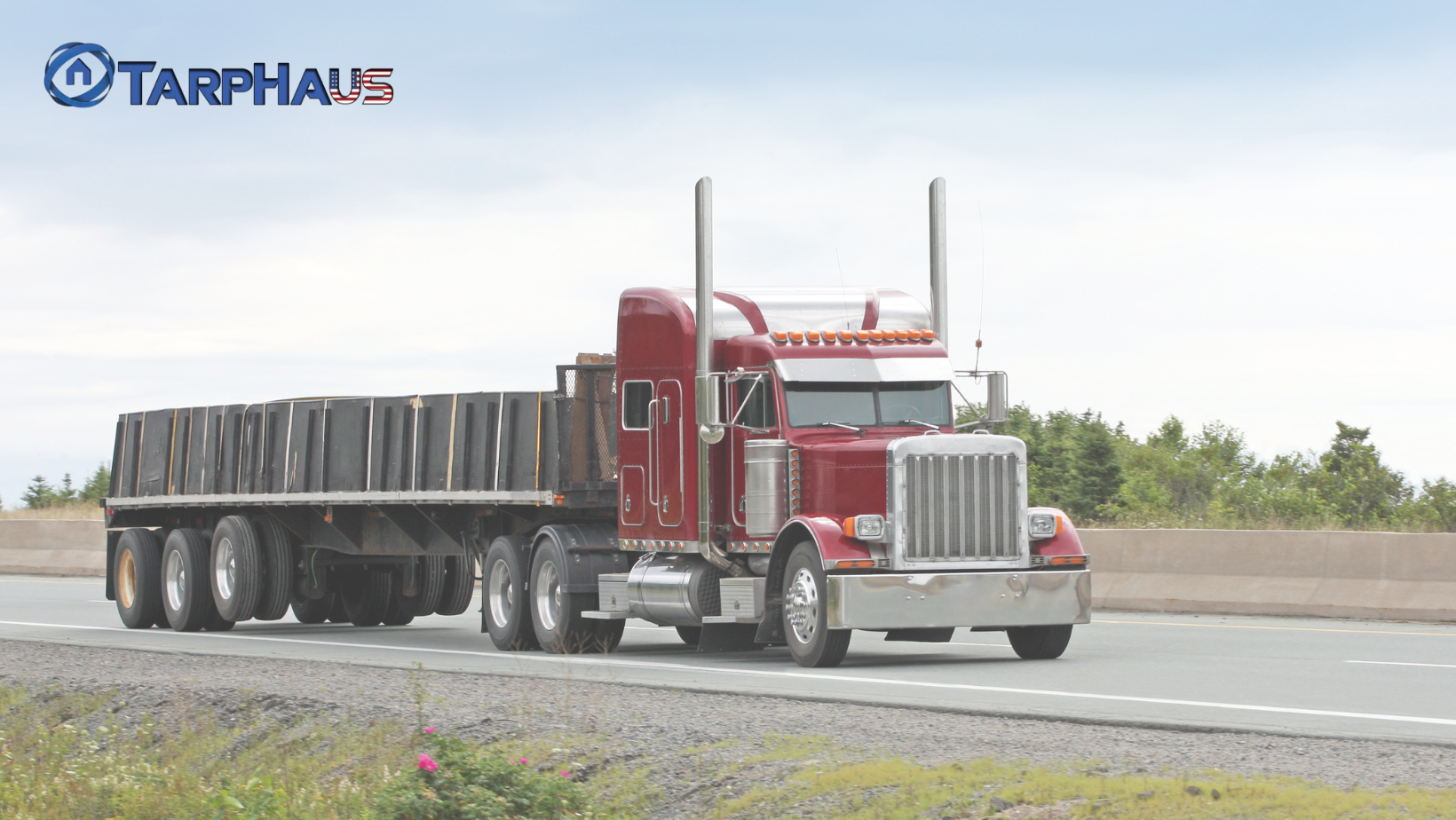
THINGS TO CONSIDER WHEN CHOOSING THE RIGHT TARP FOR YOUR FLATBED TRUCK
Finding the right tarp for your needs proves to be a daunting task, especially since there are so many different options and prices, starting from few hundred dollars to thousands of dollars for the electric ones + installation costs. So what are the things you should consider when finding the most suitable tarp for your load?
SOME QUALIFICATION AT FIRST
- Is the tarp really necessary? Usually type of loads that need to be tarped are the ones that represent some risk of blowing off during transportation or strong weather conditions, which would also impose a risk on other drivers. If the load is heavy and doesn't impose any risk, then probably a tarp might not be necessary.
- Is the load weather susceptible? Not all loads need flatbed tarp. But you should always consider weather conditions, and how they affect the load. i.e. iron products and other materials based on iron alloy may rust or corrode.
-
Is the type wood, aluminum, coal or something else? Different load types may require a specific tarp system, usually based on truck-drivers best practices
-
Should the load be partially or completely covered? (Maybe only a smoke tarp is required to protect the load from smoke and soot).
-
The shape of the load. If the load has irregular shapes, you should consider getting thicker tarp, to avoid perforations in the tarp.
-
The exact dimensions of the load. Before requesting to tarp a load, you need to accurately know the length, width, and height of the load
MAKING THE PROPER SELECTION
Below are some useful hints you need to consider when making a decision about the flatbed tarp that fit your transportation needs.
Sliding or Flip-up Tarps?
If you regularly haul large items (gravel, grains or mounds), then the best option would be flip-up tarps. These tarps can fit various sizes and are more flexible, avoiding possibility of damage. On the other hands, tarp systems are best fitted for level loads.
Automatic or Manual?
Something else to consider when searching for flatbed tarp is the mechanism. Would you like to introduce the robotized framework? Or on the other hand is the manual system spot on for your necessities? Automatic frameworks are simpler to oversee and function admirably for those that constantly pull low loads. The manual systems are fitting for the flip-up tarp frameworks, as this will give you absolute control of how the covering closes.
Consider Customized Tarps
At the point when you have a custom flatbed tarp, you are ensured to get the correct fit. Normally, tarps are sold or sliced pre-estimated by your specifications. Searching for the specific size of your required tarp can be interesting, so risks are, you like to go to a bigger size and secure all the abundance before you drive away. At the point when you have modified tarp, the material is cut and estimated and is known as the cut size. Sews are then sewn together on each side before grommets are added.
Consider Different Type of Materials
Coverings are by and large created from various materials. Notwithstanding, there are a few materials that are not ideal for flatbed tarps. You should consider avoiding lightweight coverings as these sorts can't withstand serious climate conditions, wind, or stains.
By and large, the sorts of materials for the most part utilized in causing coverings to incorporate canvas (treated or untreated), clear PVS, iron horse polyester, network, poly, or vinyl. For shipping coverings, your most ideal choices are the iron horse polyester canvases and the vinyl canvases.
The iron horse polyester tarps are very thick and are twice as strong as the cotton canvas. One good thing about these materials is that they are waterproof, thus keeping you away from stains. They also do not contain chemical or plastic odors that are typically notable in standard tarps.
Vinyl tarps, on the other hand, have three types: vinyl temper, vinyl laminate, and vinyl coated. Vinyl tempers are very common and are usually used for tents. These can withstand tearing and ripping and are also waterproof. Vinyl laminate is a less rigid one and cannot survive different weather conditions and strong winds. The best vinyl options for truck tarps are the vinyl coated tarps. These are UV-treated and designed to help lessen damages from the sun.
We provide various flatbed products, including tarps in different size, model or material. Our facility has a sound expertise in helping you to select and mount the right tarping system for your transportation needs.
For all questions and queries, visit www.tarphaus.com, or simply send us an email at vic@tarphaus.com.
